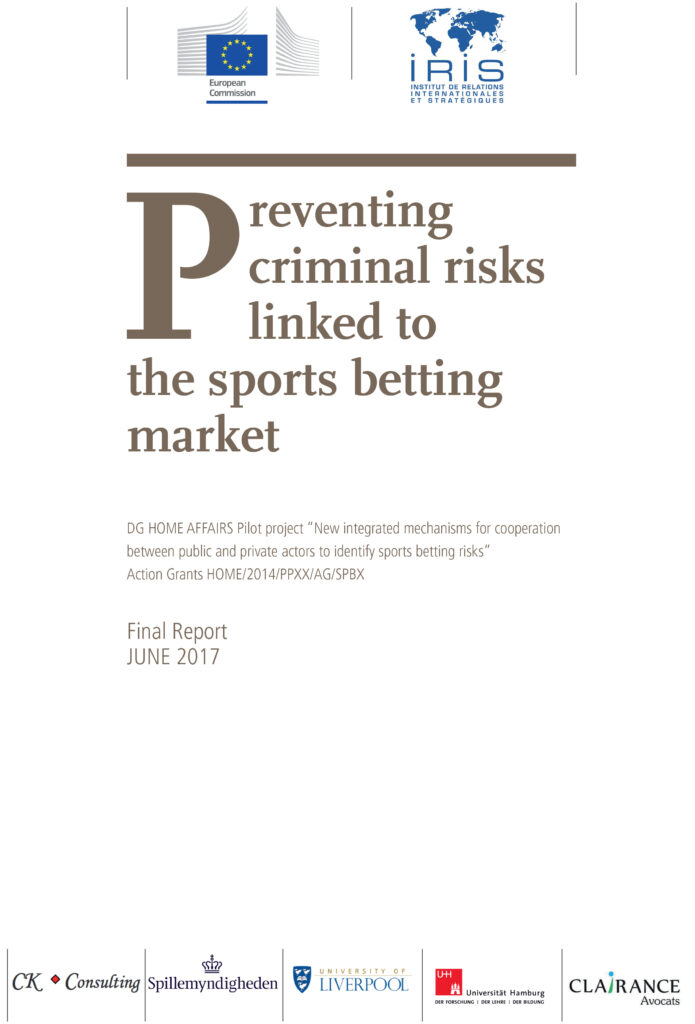Études / Sport et géopolitique
15 juin 2017
Preventing criminal risks linked to the sports betting market – Final Report

On January 5th 2016, IRIS and its partners (University of Liverpool, University of Hamburg, the Danish Gambling Authority, CK Consulting, Academicon, Academic and Clairance Avocats). launched a two-years program intending to create consistent and authoritative knowledge on the criminal risks linked to the sports betting market (money laundering, infiltration, corruption and cybercrime), assist national authorities in protecting betting integrity and building networks of concerned public and private stakeholders at national level (betting operators, betting regulators, sports organisations, ministries in charge of sport, law-enforcement, FIU, relevant experts). This project was financed by the European Commission, through a call for proposal issued by DG Migration and Home Affairs. Find here the Final Report.
The Report highlights how criminals have reacted to developments in the sports betting 7 market (and how they may also have shaped them). Potential growth areas include the increase of online betting (compared to retail betting), the growing access to foreign websites (i.e., the internationalisation of the market), the acceptance of new payment methods or the development of new betting products. These changes could indeed lead to the assumption that sports betting is predisposed to criminal activity and, by consequence, become a target for illicit networks seeking opportunities to launder money or raise funds, or to gain upperhand positions in this growing economic sector and its infrastructure. The Report will assess the reality of such assumptions through information from existing research, past and current international law-enforcement cases and information from leading representatives of the betting industry.
The European betting market will also be assessed in order to evaluate its level of protection against illegal betting. Compliance from 19 betting operators will be evaluated to see whether they accept registrations, bets and withdrawals from consumers in jurisdictions where they do not have the required licence.
Finally, aspects of the current environment will be taken into account to understand how criminal activities are more likely to emerge in certain economic, cultural or technological conditions over others. We will assess risk by employeing the three-steps methodology advocated in the EU Serious and Organised Crime Threat Assessments prepared by Europol.
The objective of the risk assessment is to provide a policy-oriented tool to help EU MS to prioritise their action with regard to sports betting. The hierarchy of risks is also country-dependent by certain criteria (level of organised crime, type of regulation).
The last part of the report is dedicated to concrete operational recommendations and examples of good practices for all main criminal risks identified. It should also be noted that research findings have been tested during 10 national seminars which were organised within the EU. These seminars gathered law-enforcement representatives (police, justice, AML, financial police), betting regulators and operators, and sports organisations. The reactions and results of discussions are also included in this Report.

